Imagine traveling along the breathtaking mountain passes and lakes of Switzerland, stopping at quaint villages, and exploring the beautiful lakes and hiking trails. If this seems tempting, then this guide on renting and driving a car in Switzerland is your go-to resource. The train is one of the best ways to get around in Switzerland but having the freedom and flexibility of a rental car in Switzerland is often a much better option for your travels.
First and foremost, most travelers want to know about the best place to hire a car in Switzerland. When I rent a car in Switzerland, I recommend and I always use the online booking comparison site Discover Cars, and you can see why below.
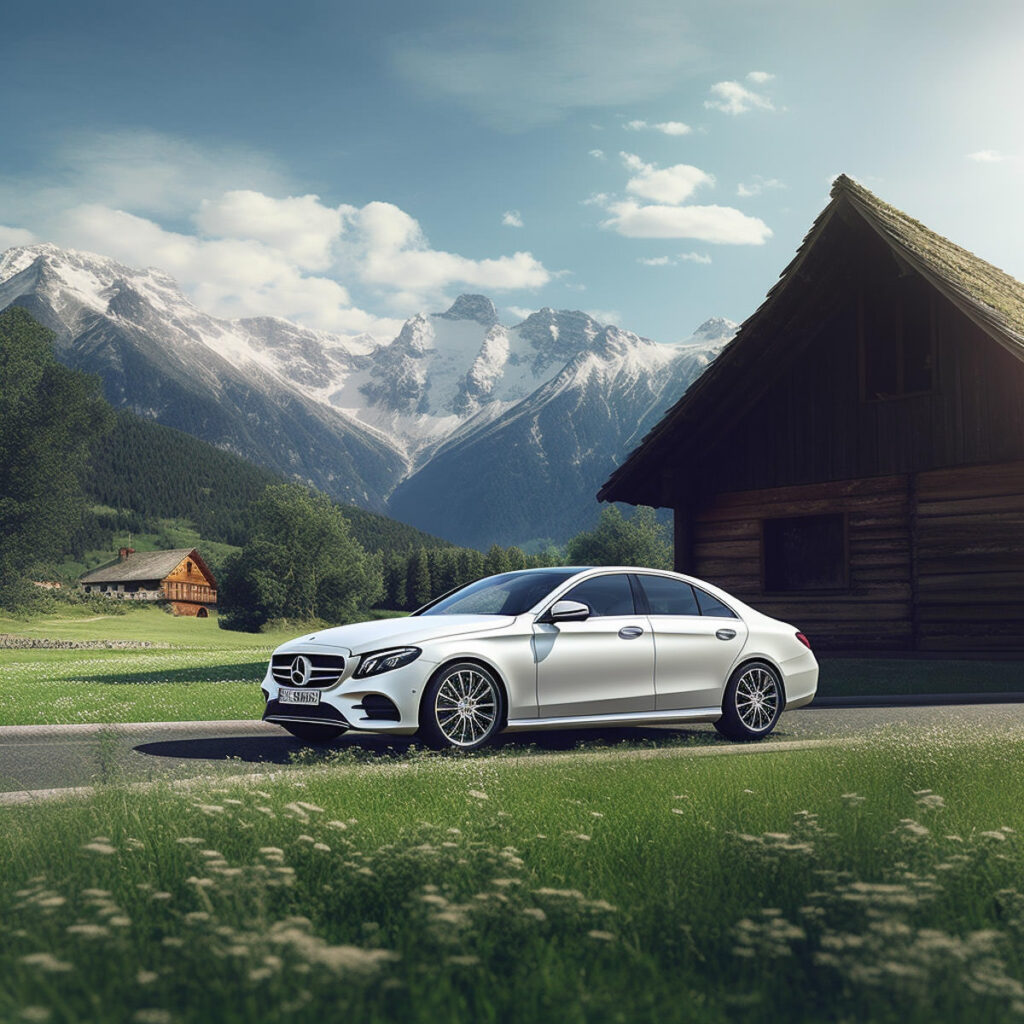
Renting a Car in Switzerland: Your Step-by-step Guide
In this guide, I will share everything you need to know about renting a car in Switzerland. There are some insider tips here that will save you time and money throughout the process.
The best part about Discover Cars? You can add full coverage insurance for only about $8 per day.
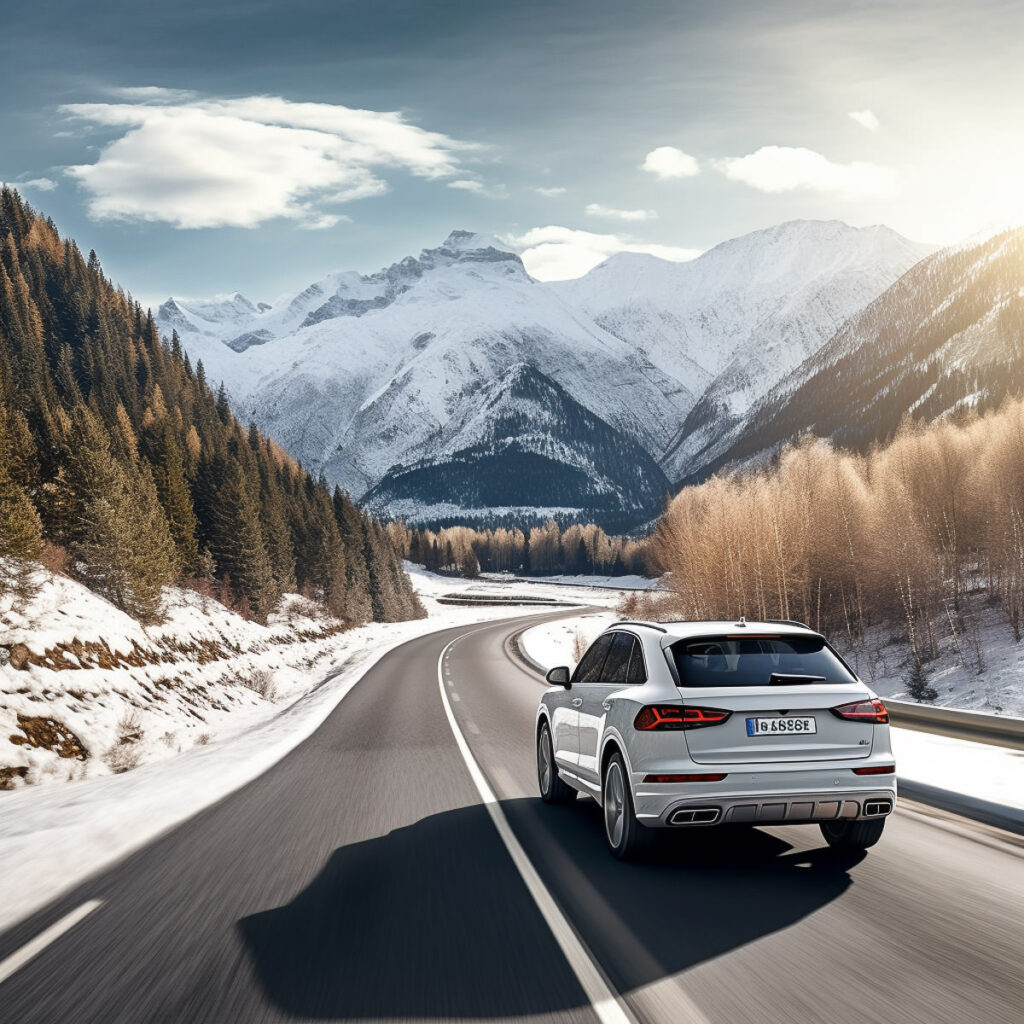
Choose Your Rental Company
Switzerland boasts several renowned international and local car rental companies, including Hertz, Europcar, Sixt, Avis, and Auto Europe.
In the competitive landscape of car rental services in Switzerland, two companies often stand out due to their reputation, customer satisfaction, and extensive coverage: Europcar and Sixt. I recommend booking with one of these companies but through an online comparison tool for a cheaper price such as Discover Cars.
Europcar, a leading car rental service with an extensive network across Switzerland, is a go-to choice for many travelers. Boasting a wide range of vehicles, from economic city cars to luxury vehicles, Europcar caters to diverse travel needs and budgets. One of Europcar’s distinguishing features is its “Green Program”, which offers an array of hybrid and electric vehicles for eco-conscious travelers.
The company’s commitment to excellent customer service is also noteworthy, with comprehensive online and in-person support and an easy-to-navigate booking process. Further, their flexible rental terms, including one-way rentals and long-term leasing options, ensure a tailored experience for each client. Search now on Discover Cars for deals from Europcar.
Sixt is another top contender in Switzerland’s car rental market, known for its premium services and high-quality vehicles. Sixt’s fleet is regularly updated, ensuring customers have access to the latest car models equipped with advanced features. A notable feature of Sixt is their ‘Sixt+ subscription’, offering a new car at a fixed monthly price, including all vehicle-related costs except for fuel. This makes it an ideal choice for those planning extended stays.
Sixt is also renowned for its professional service and streamlined online booking process, with options for additional services like supplemental insurance, GPS, child seats, and more. Search now on Discover Cars for deals from Sixt.
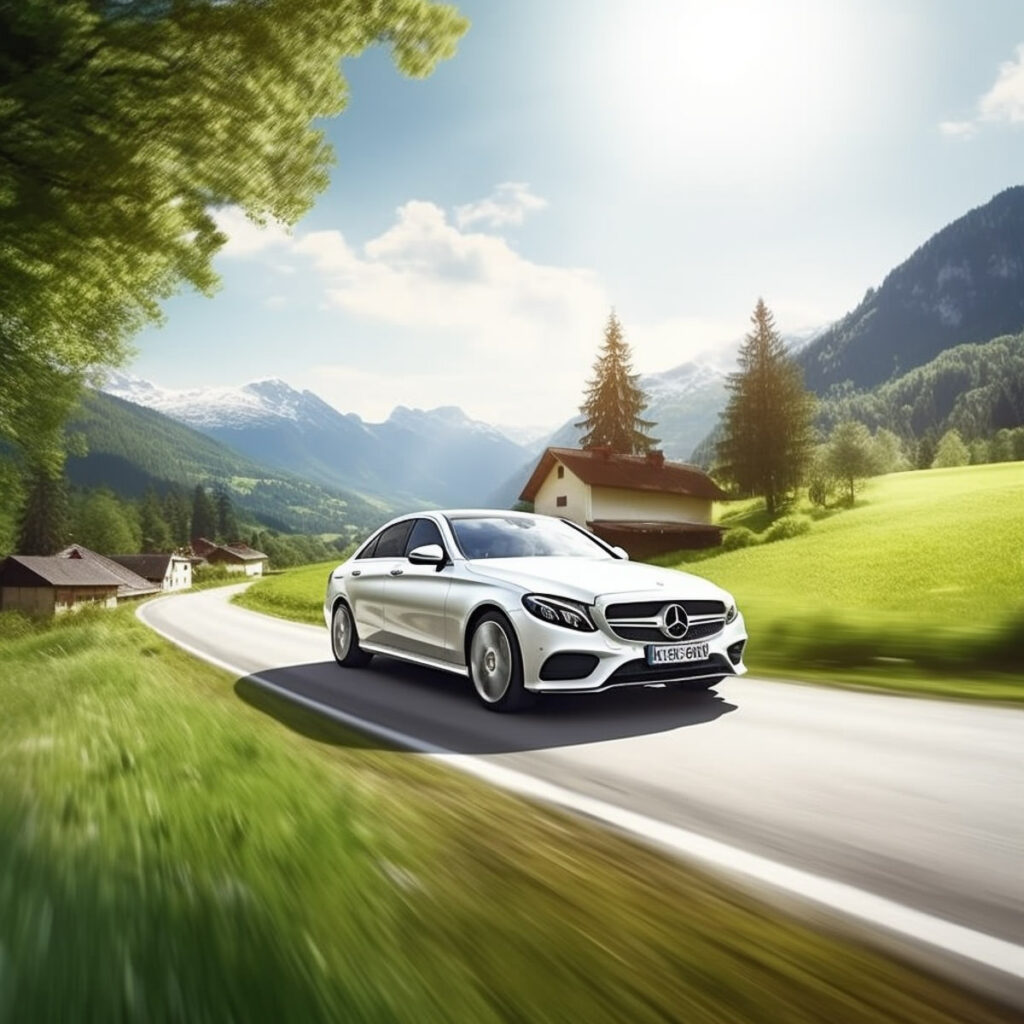
What Type of Rental Car is Best for Switzerland
Choosing the right vehicle for your Swiss adventure greatly depends on the regions you plan to explore, the season and the size of your travel group. If you’re primarily visiting cities like Zurich, Geneva, or Bern, a compact car is usually the best choice. If you are exploring more natural locations like Interlaken or Chur a regular car will be fine. Compact cars are easy to navigate through narrow city streets and more fuel-efficient, plus finding parking for smaller vehicles tends to be less of a hassle in urban areas. The great part about a small, compact car is that they are often the cheapest and You can filter the search on Discover Cars always has good deals on these smaller vehicles.
However, if your itinerary involves the Swiss Alps, or you’re visiting in winter when roads can be snowy or icy, consider renting an SUV or a car with four-wheel drive. These vehicles provide superior traction and stability, making them safer and more comfortable for mountainous terrain and winter conditions. For larger groups or families, a minivan or station wagon might be the best option, offering ample space for passengers and luggage without sacrificing comfort. You can filter the search on Discover Cars for SUVs and all-terrain vehicles.
As Switzerland is environmentally conscious, you may also want to consider hybrid or electric vehicles, which several rental companies offer. Not only are these cars more sustainable, but they also have the added benefit of being exempt from some low-emission zone restrictions. You can filter the search on Discover Cars for electric vehicles.
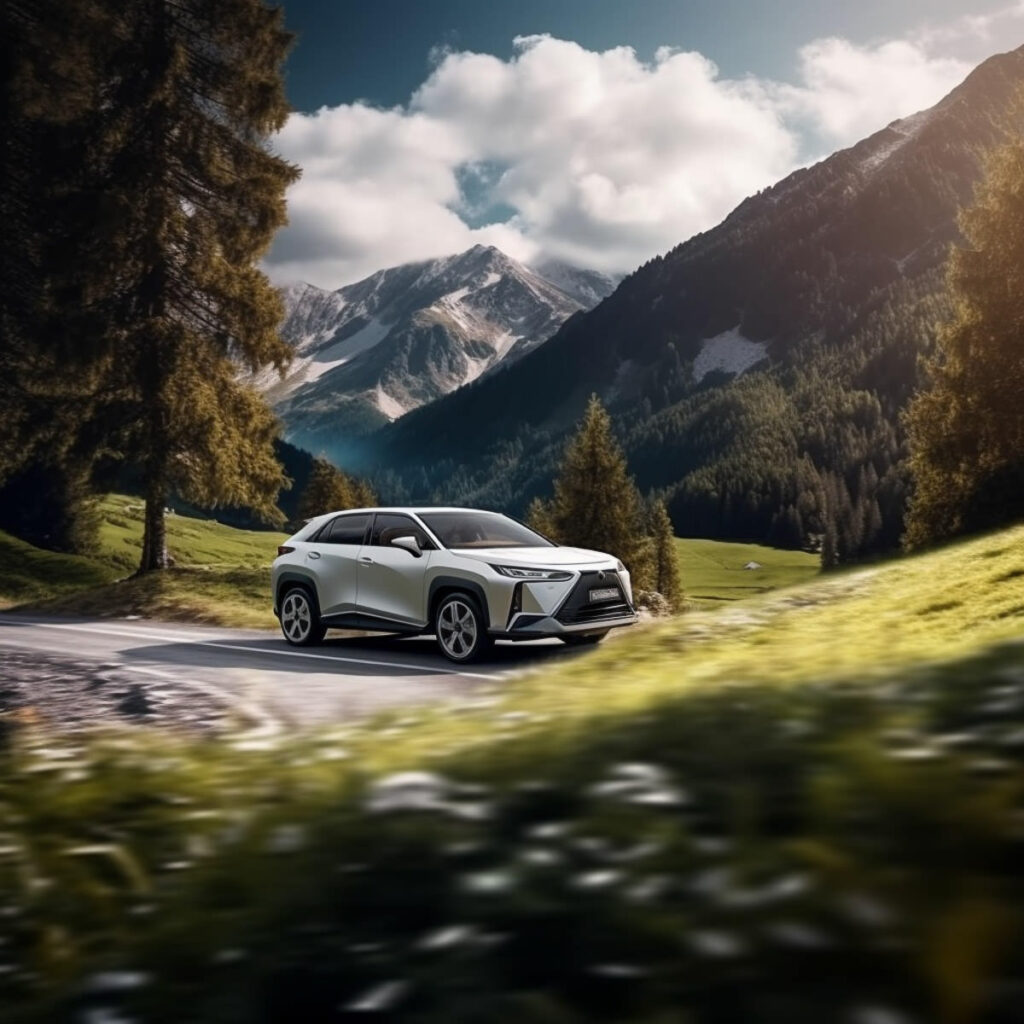
Where to Book a Rental Car in Switzerland
When considering where to book your rental from within Switzerland, there are a few options.
- Pre-book online before your arrival and pick up the car at the airport
- Pre-book online before your arrival but pick up the car in a city such as Zurich, Bern or Geneva.
- Organize with a vendor at your hotel (the most expensive option)
The smartest option is to pre-book your car rental and pick it up from the airport. The taxi from the airport to most major city centers n Switzerland as of 2023 is about $40. That is much more than a single day of a car rental when booking online with Discover Cars.
I’ve picked up rental cars from the airport and my experience has always been better at the airport where the staff is very efficient and it is a quick process.
Regardless of the location you choose, I recommend and personally use Discover Cars when hiring a car in Switzerland.
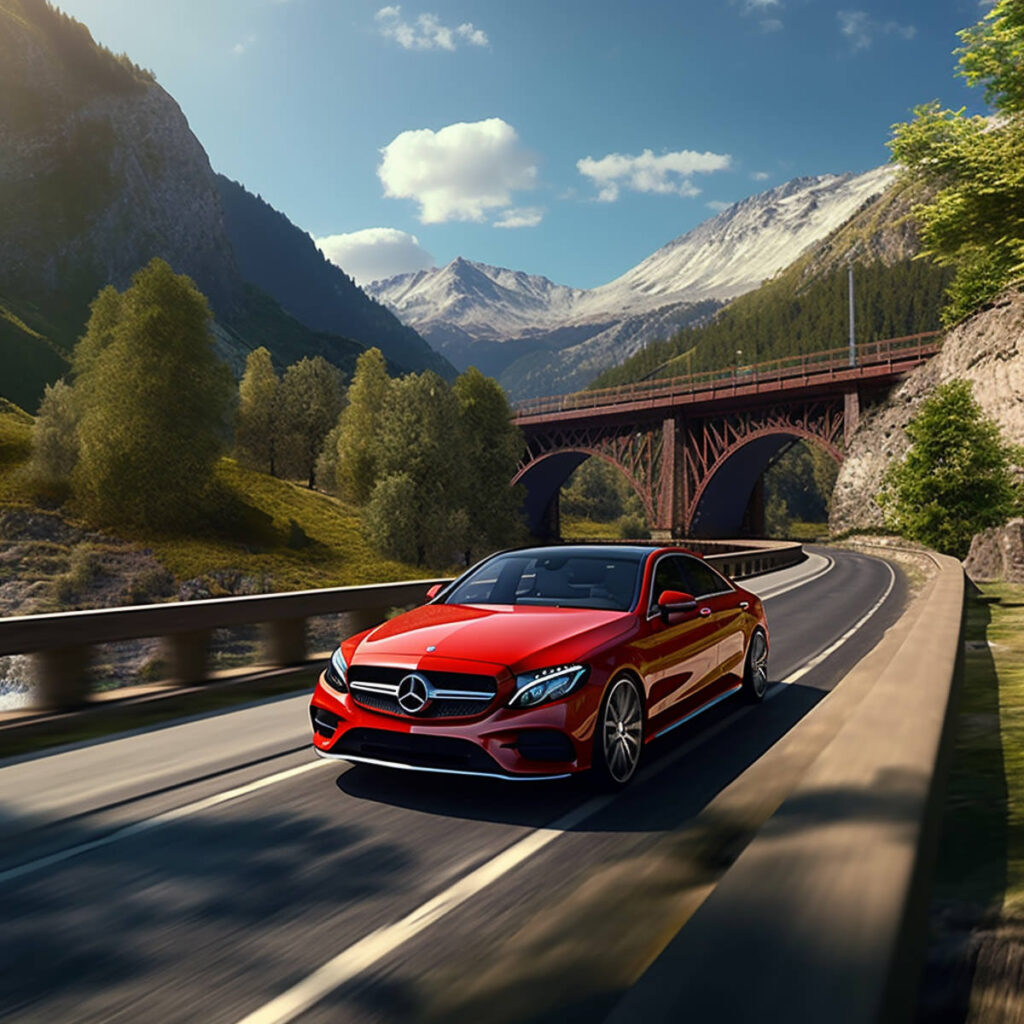
Do you need an International License for Renting a Car in Switzerland?
Typically, to rent a car in Switzerland, you need to be at least 20 years old (some companies require 25) and have held a valid driving license for at least a year. International travelers do not need an IDP (International Driver Permit) and can simply use their English driver’s license from their country of origin. If your driver’s license is in a language other than English and outside of the EU, you should check if you will need an IDP.
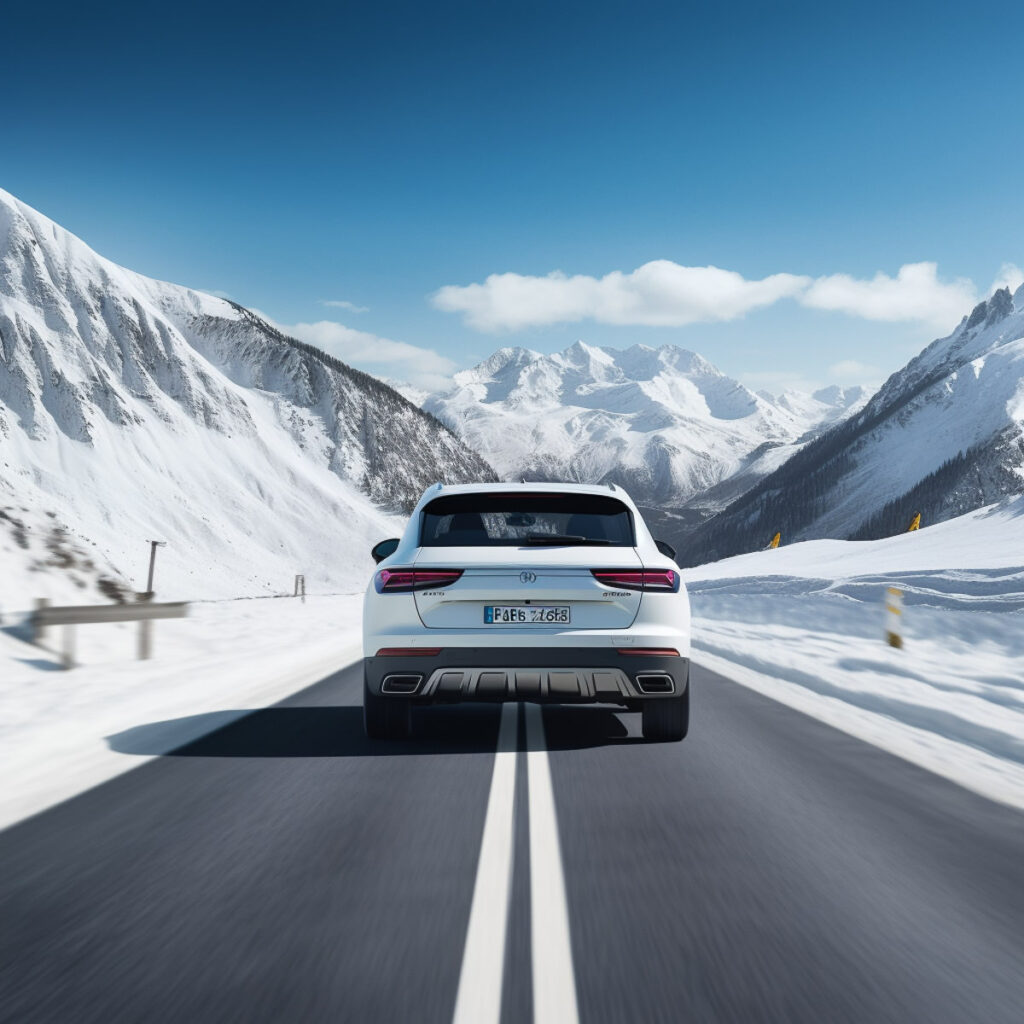
Consider Insurance for your Switzerland Rental Car
Insurance is a critical consideration when renting a car in Switzerland, or anywhere for that matter. Car rental companies generally include a basic level of insurance in the rental price, typically covering liability insurance and theft protection. However, this might not be sufficient.
Rental vehicles usually come with a high excess/deductible charge, which is the amount you’re liable to pay in the event of damage or theft. You can easily add rental insurance for a few dollars a day when you book with Discover Cars.
Therefore, it’s often recommended to purchase additional coverage such as Collision Damage Waiver (CDW) to reduce or eliminate this excess. Remember to check your travel insurance policy as well, as some plans include rental car insurance, which could save you from buying extra coverage. When making this decision, consider your comfort level, the value of the vehicle you’re renting, the conditions in which you’ll be driving, and the financial risk you’re willing to assume.
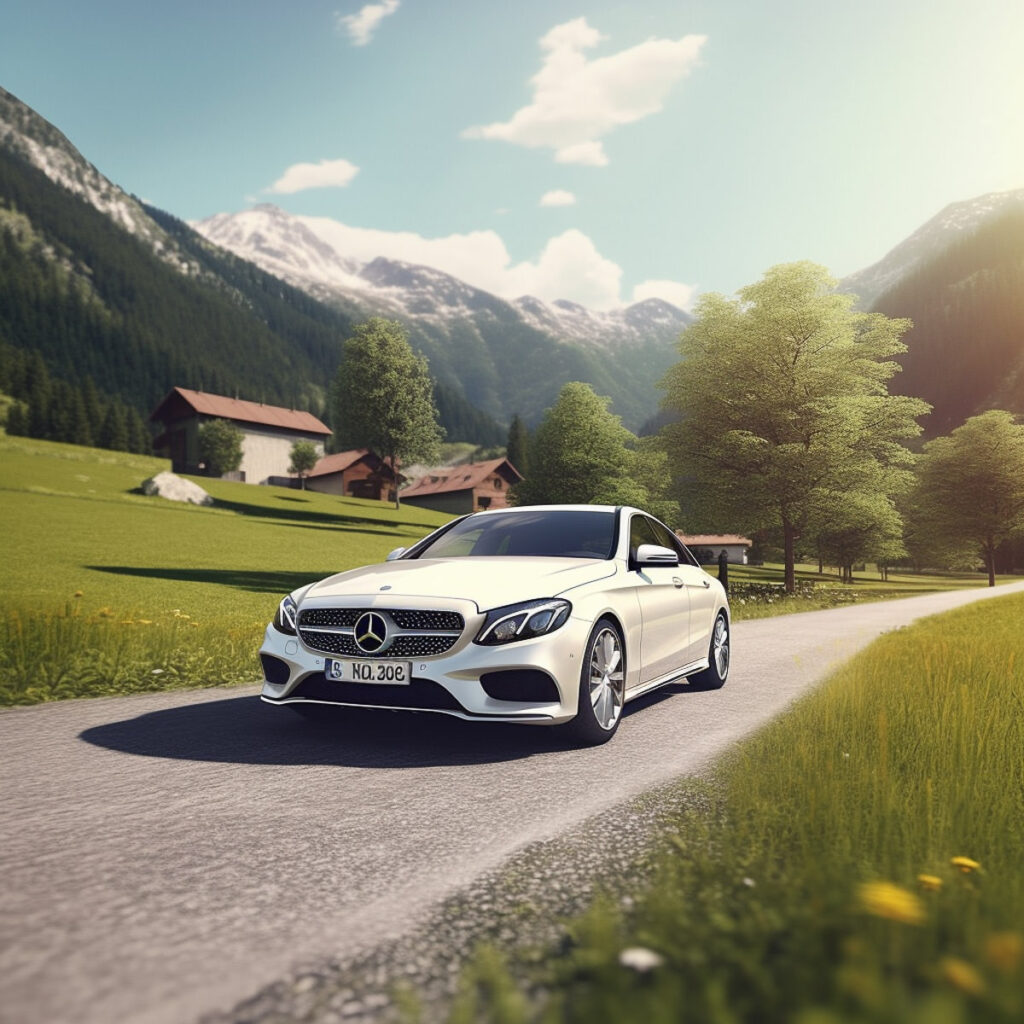
Driving in Switzerland: What You Need to Know
For the most part, driving in Switzerland is quite straightforward. The signage is great and the roads are in good condition. Speeding is controlled by cameras so beware and play by the rules.
Rules of the Road in Switzerland
In Switzerland, you drive on the right-hand side of the road, and overtaking is done on the left. Seat belts are mandatory for all passengers in the vehicle, and children under 12 years old or shorter than 150 cm must use a child seat or booster seat. The use of a mobile phone while driving is prohibited unless you’re using a hands-free device.
The country strictly enforces speed limits, which are 120 km/h on motorways, 80 km/h on open roads, and 50 km/h in built-up areas. Watch out for reduced speed zones, usually around schools, hospitals, and residential areas. Traffic lights and road signs in Switzerland follow international standards, but remember that yellow diamond signs indicate priority roads.
Another significant aspect of driving in Switzerland is the rules for motorways. A highway vignette (toll sticker) is required for all cars using the Swiss motorways, and these can be purchased at gas stations, post offices, and border crossings.
Besides, strict rules apply to drink-driving, with a low legal blood alcohol content limit of 0.05%. It’s worth noting that traffic originating from the right has the right of way at intersections unless otherwise marked. Finally, in mountainous areas, vehicles ascending generally have the right of way, and use of the horn is common on narrow mountain roads to alert oncoming traffic.
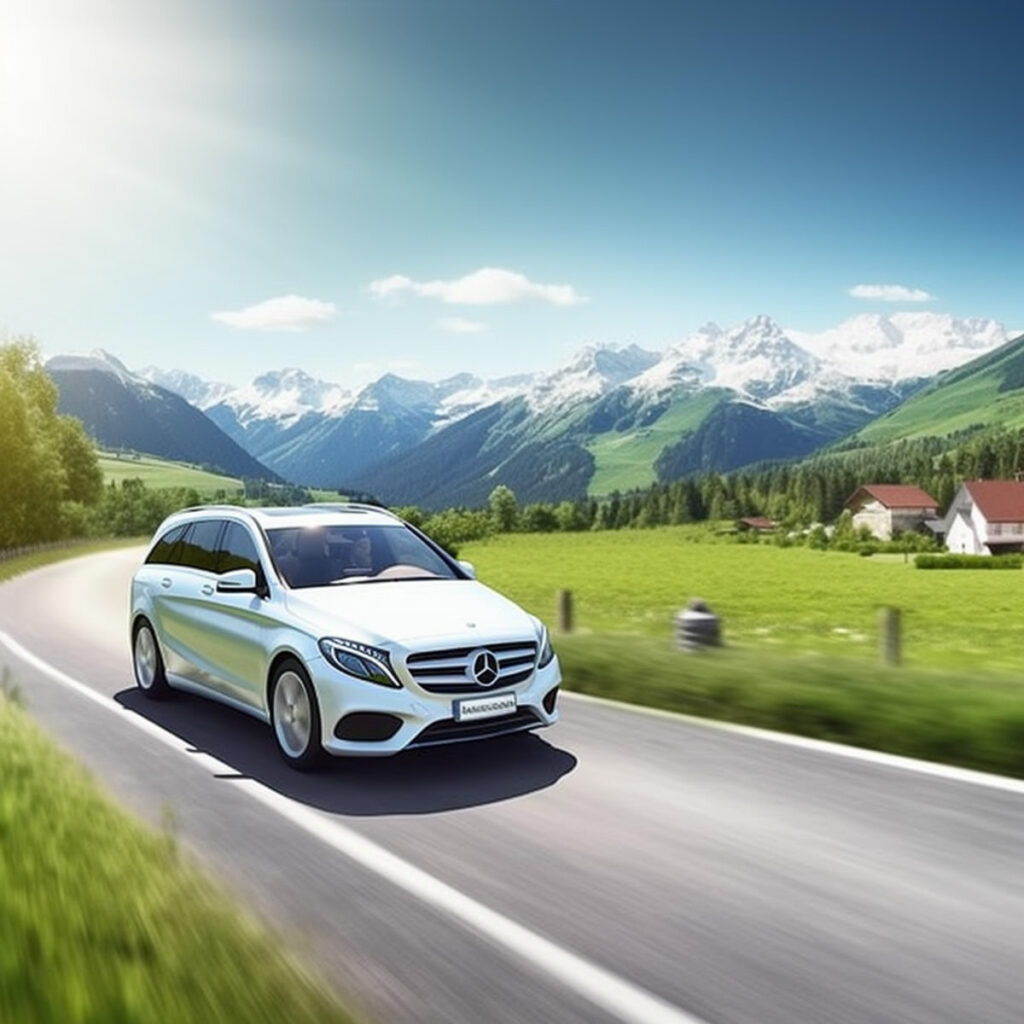
Speed Limits in Switzerland
Switzerland has strictly enforced speed limits: 120 km/h on highways, 80 km/h on open roads, and 50 km/h in urban areas. Speeding fines are hefty, so ensure you adhere to these limits.

Highway Vignette & Tolls in Switzerland
Traveling on Switzerland’s well-maintained motorways requires a vignette, a toll sticker that contributes to the funding of the country’s road infrastructure. The vignette must be affixed to your vehicle’s windshield to be clearly visible.
Vehicles without a valid vignette are subject to heavy fines. This annual toll sticker, valid from December of the previous year to January of the following year, allows unlimited travel on Swiss motorways. You can purchase a vignette at various points of sale including border crossings, post offices, and gas stations.
For those renting a car in Switzerland, it’s essential to ensure that the rental vehicle is already equipped with a valid vignette. If you’re importing a car, remember to purchase and affix the vignette before driving on the motorways. The vignette system facilitates smoother traffic flow by eliminating the need for traditional toll booths, making your Swiss road trip a more seamless experience.
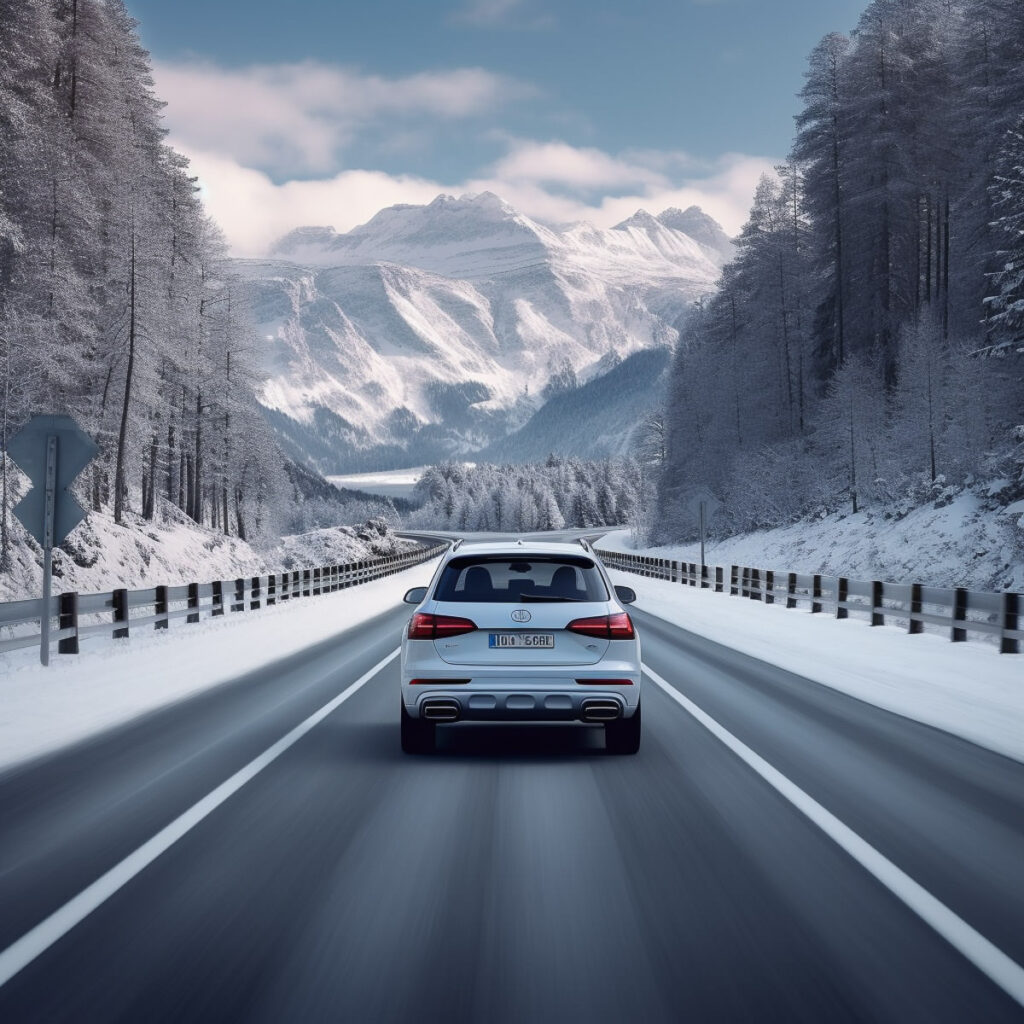
Drink Driving in Switzerland
Switzerland has strict drink-driving laws. The legal alcohol limit is 0.05%, which is lower than in many other countries.
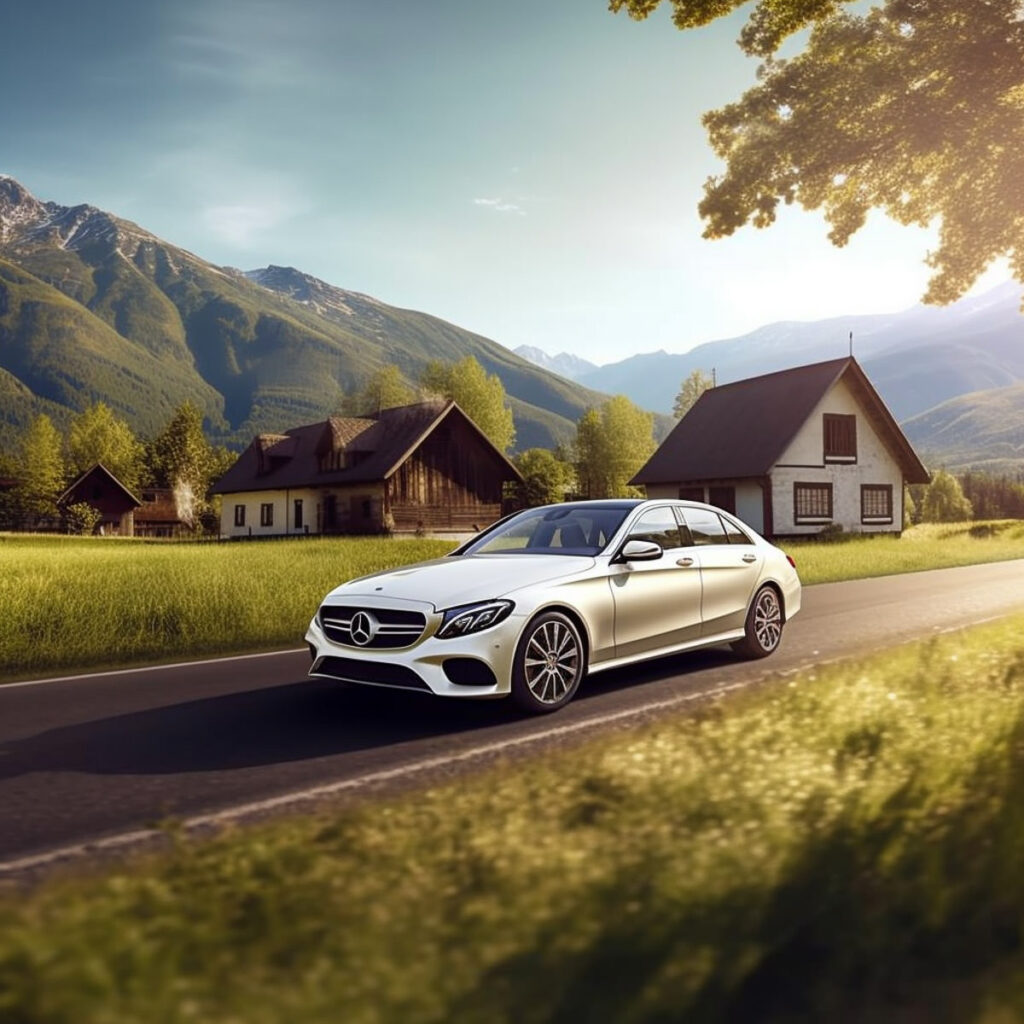
Parking your car in Switzerland
Navigating parking in urban areas in Switzerland, like in most cities around the world, can be challenging due to high demand and limited spaces. However, understanding the Swiss parking system will ease your experience. Parking zones in Switzerland are typically color-coded: blue, white, and yellow. In blue-zone parking areas, you can park for free for up to an hour, but you need to display a parking disc (available at police stations or online) indicating your arrival time.
Blue zones are in effect from 8:00 AM to 11:30 AM and 1:30 PM to 5:00 PM on weekdays, freeing up the evenings and weekends for unlimited parking. White-zone parking, on the other hand, usually involves fees and is metered, often payable at nearby ticket machines. You must display the ticket clearly on your dashboard. Duration restrictions vary, so be sure to check the signage.
Yellow zones are exclusively for permit holders, typically residents or businesses of the area. Parking in a yellow zone without the appropriate permit can result in hefty fines. Public parking garages and park-and-ride facilities are also available, often offering more convenient and longer-term parking solutions. Knowing the rules of each parking zone will make your urban navigation more convenient and stress-free in Switzerland.
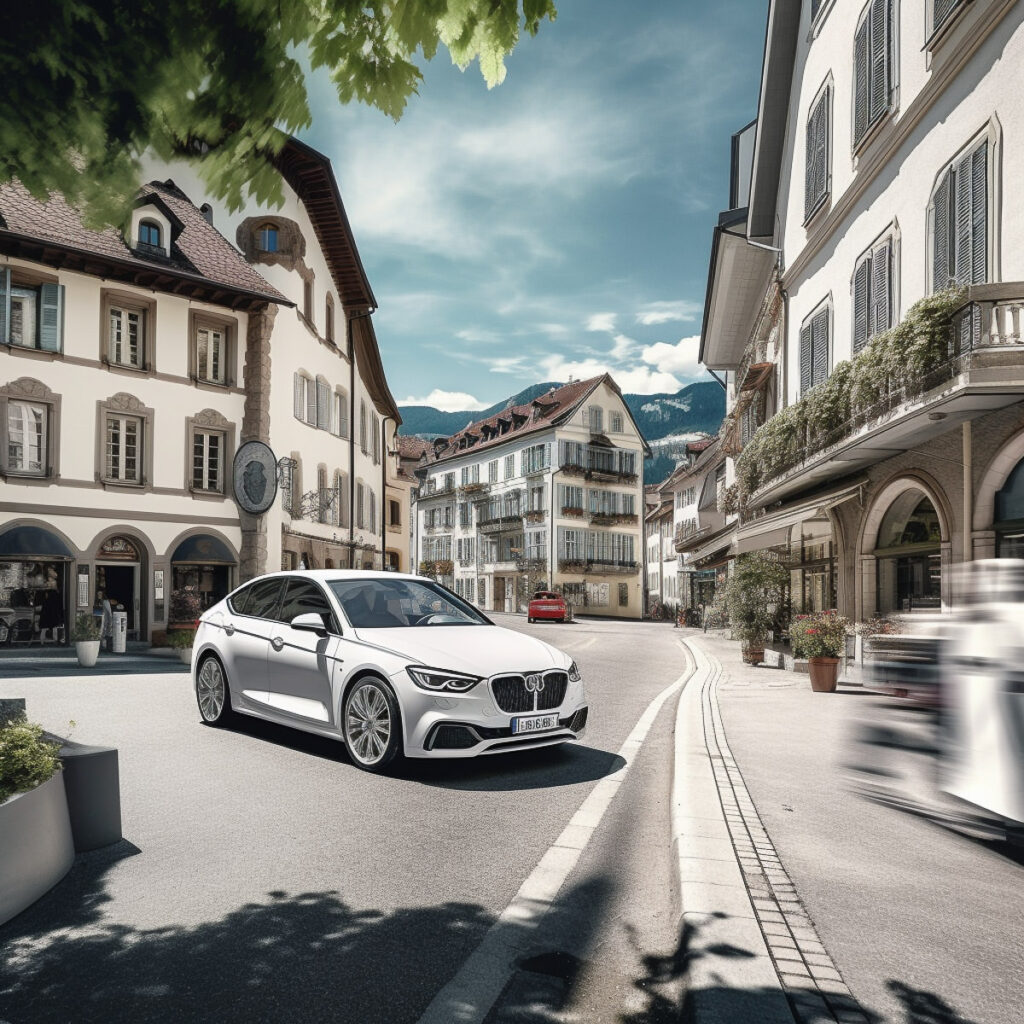
Mountain Driving in Switzerland
Navigating Switzerland’s beautiful yet challenging mountainous terrain demands both skill and extra caution. The narrow, winding roads often lack guardrails, and unexpected turns can lead to reduced visibility.
A key rule to remember is to always give way to vehicles ascending. This is because vehicles moving uphill may have difficulty regaining momentum if they stop, due to the steep incline. It’s a courtesy and safety measure that helps maintain smooth traffic flow on mountain roads.
In addition, the weather in alpine regions can change rapidly. A sunny day can quickly turn into fog, rain, or even snow, drastically affecting road conditions and visibility. Therefore, keeping an eye on the weather forecast and being prepared for sudden changes is crucial. If you’re driving in winter, be aware that snow and ice can make the roads slippery, requiring winter tires or snow chains for added safety.
When driving through tunnels, remember to turn on your headlights. Mountain driving in Switzerland is a thrilling experience, but it’s also an endeavor that calls for cautious driving, respect for the rules of the road, and an understanding of the unique challenges posed by the alpine environment.
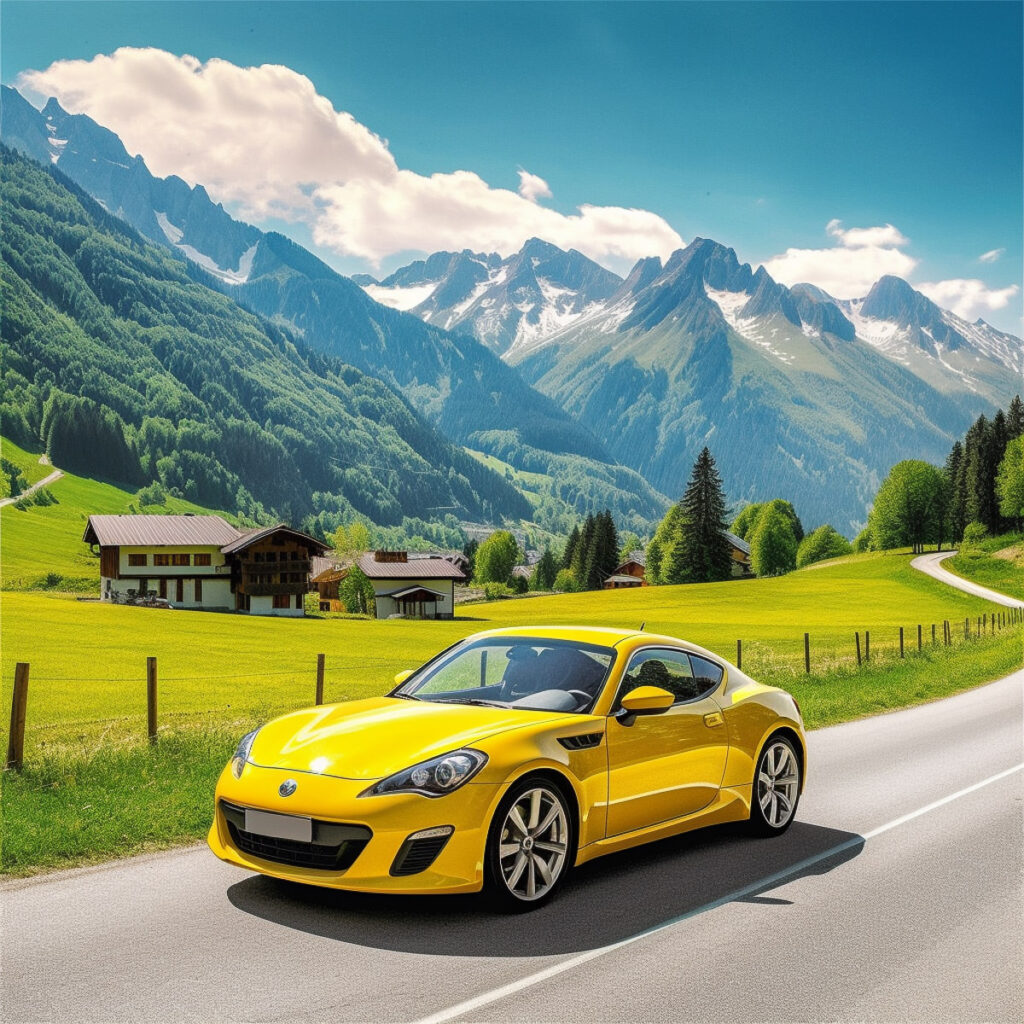
Winter Driving
Winter tires are not mandatory but highly recommended in winter. Snow chains are obligatory when indicated by road signs.
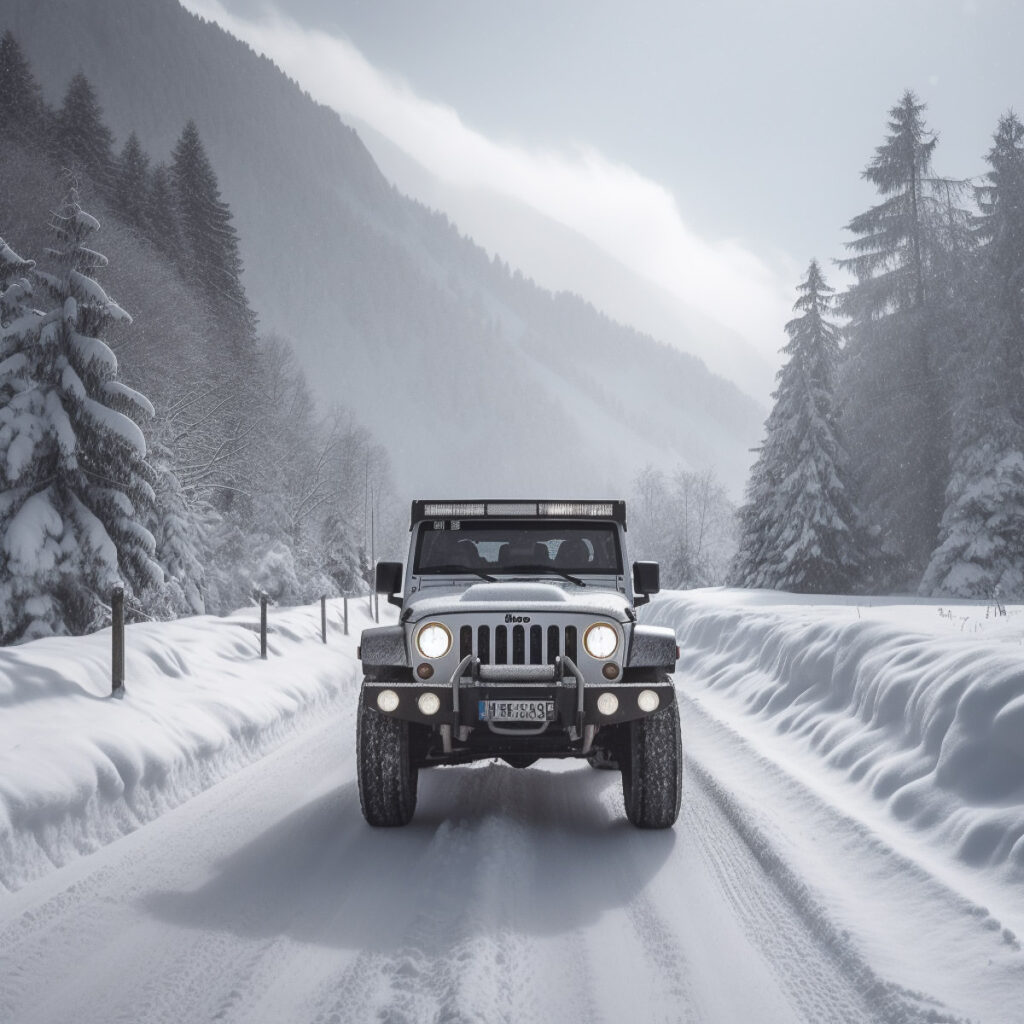
Conclusion
Renting and driving a car in Switzerland provides a unique and flexible way to explore the country’s spectacular landscapes and hidden gems. Understanding the ins and outs of the car rental process and the country’s driving rules will make your journey more enjoyable and worry-free. So buckle up and get ready to create unforgettable memories on your Swiss adventure.
MY SWITZERLAND HIKING GUIDES
I spent 100 days hiking in Switzerland and created a guide for different regions around the country. You can click on one of my Switzerland hiking guides below to help you plan your trip.
- The Complete Guide: 50 AWESOME HIKES IN IN SWITZERLAND
- The Via Ferrata Guide: 4 EPIC SWITZERLAND VIA FERRATA COURSES
- Lauterbrunnen Guide: 10 AWESOME HIKES NEAR LAUTERBRUNNEN
- Interlaken Guide: 15 AWESOME HIKES IN INTERLAKEN
- Grindelwald Guide: 12 AWESOME HIKES NEAR GRINDELWALD:
- Mürren Guide: 7 AWESOME HIKES IN MURREN
- Appenzell Guide: 9 AWESOME HIKES NEAR APPENZELL
- Chur Guide: 7 AWESOME HIKES NEAR CHUR
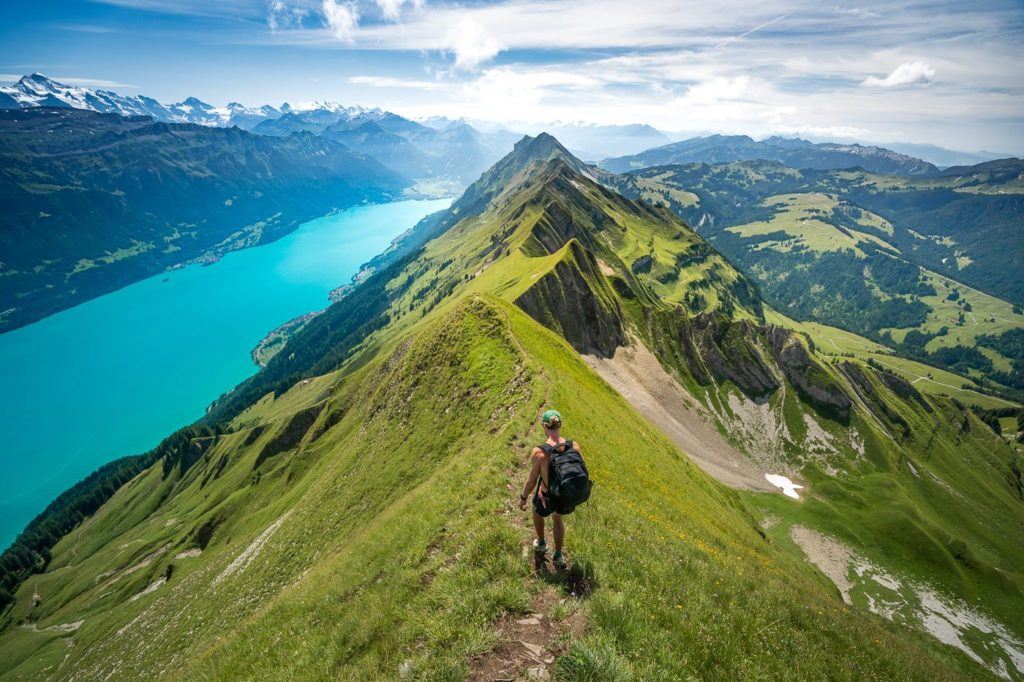
MY SWITZERLAND TRAVEL TIPS
- For Backpackers: SWITZERLAND BUDGET BACKPACKING GUIDE
- Travel Tips: 20 THINGS TO KNOW BEFORE VISITING SWITZERLAND
- Transport Tips: RENTING AND DRIVING A CAR IN SWITZERLAND
- Accommodation Guide: 30 BEST PLACES TO STAY IN SWITZERLAND
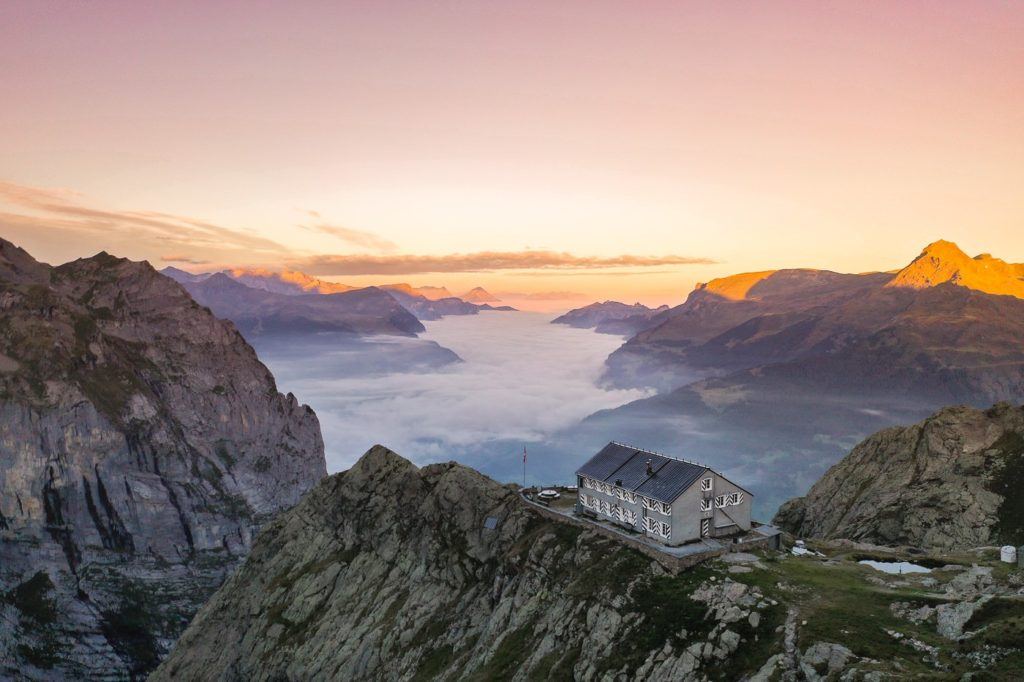

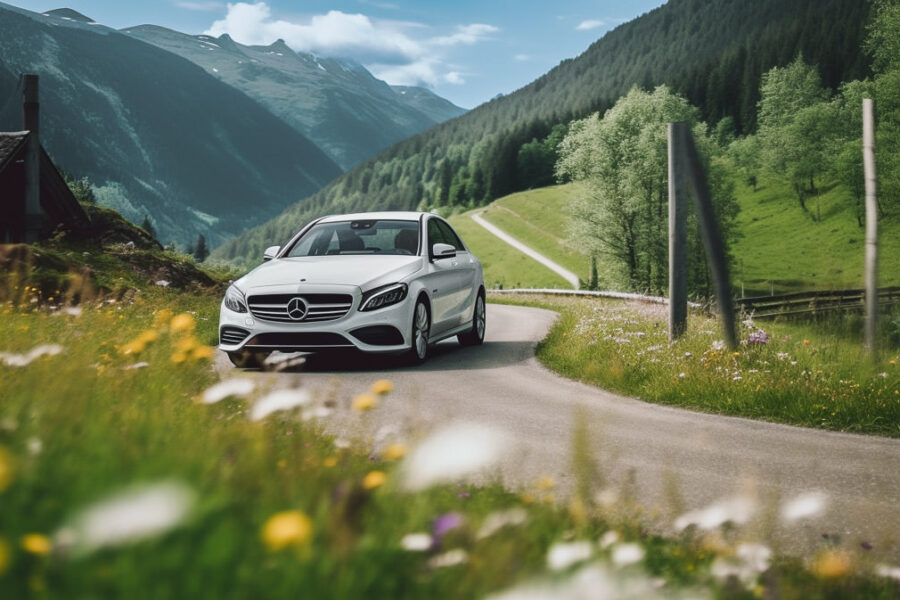
Jan
Thursday 21st of September 2023
Was looking for advice to send to visitors who are looking to rent a car. This reads like a giant advertisement, possibly even AI-generated (the pictures are for sure). I will not be passing it on. Just letting you know as this blog seems to be your life's work. The more you go down this road the less trustworthy and useful your blog will become.
Esther
Friday 25th of August 2023
Hi Jackson,
Great article and very informative! You mention "turn on your headlights" when driving through a tunnel. Actually, in Switzerland, all moving motor vehicles must keep their headlights switched on at all times – including during the day. Violating this regulation can incur a CHF 40 fine (this law is in effect since 2014).